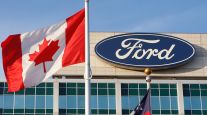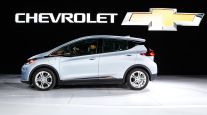Detroit at Center of Autonomous Tech Universe, Navigant Report Shows
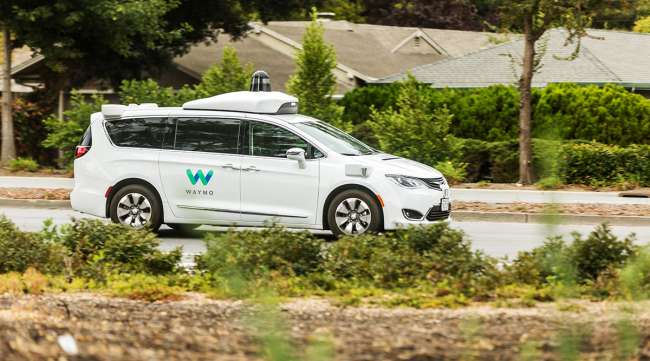
The Motor City is firmly at the front of the auto industry’s next revolution.
A new study by Navigant Research rates three companies as leaders in the race to develop and make money on self-driving, autonomous cars and trucks.
The report ranks automakers and suppliers on 10 criteria from technical capability to whether they have a business plan for how to make money on autonomous vehicles, or AVs.
It’s titled “Navigant Research Leaderboard: Automated Driving Vehicles: Assessment of Strategy and Execution for 20 Companies Developing Automated Driving Systems.”
Rankings for the top three on a scale of 100 are Waymo 86.7, GM/Cruise Automation 86.6 and Ford 84.2.
The survey doesn’t predict who will be the leading maker of self-driving cars, or who will make the most money from the technology Ford CEO Jim Hackett calls the key to a $10 trillion market for AVs and the services they will provide.
“The research looks at which companies are best prepared to commercialize the technology and deploy it in the real world,” Navigant senior analyst Sam Abuelsamid said. “GM and Waymo are the farthest along in developing the technology and having a business model to generate cash.
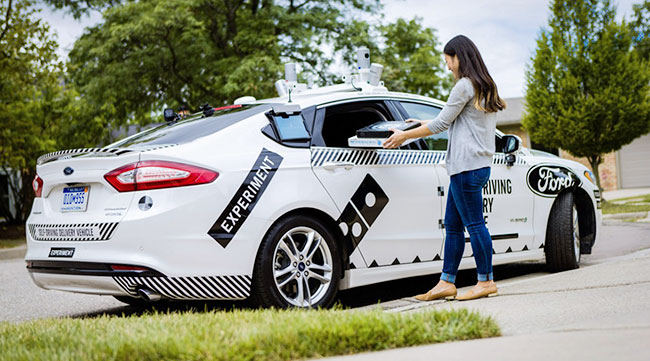
Ford Motor Company
“Ford’s not trying to be the first to market. Their goal is to have the right kind of business developed specifically for autonomous service, not an adaptation of an existing vehicle.”
Ford’s development program with a range of partners has been lower profile than automakers racing to be first to have fully autonomous vehicles in service. The flashy programs that seem to race from announcing one first to another have relied heavily on human backup drivers and offering the service in a limited area.
AUTONOMOUS UNCERTAINTY: Americans are still leery of driverless technology
“We want to have the business case complete to launch fully driverless vehicles in commercial scale in 2021,” Ford Autonomous Vehicles CEO Sherif Marakby said.
“Detroit has the highest concentration of engineers in the country,” said Richard Wallace, vice president for transportation system analysis at the Center for Automotive Research. “The technology companies realized there’s a lot they didn’t know; they didn’t want to literally reinvent the wheel. It’s better, faster and cheaper to work with the auto industry.”
GM Cruise plans to double employment this year, mostly with engineers based in the San Francisco Bay Area and Seattle. The company employs just more than 1,000 now.
Waymo’s planned local assembly facility is expected to install the latest version of its system in Chrysler minivans, plus Jaguars and Land Rovers.
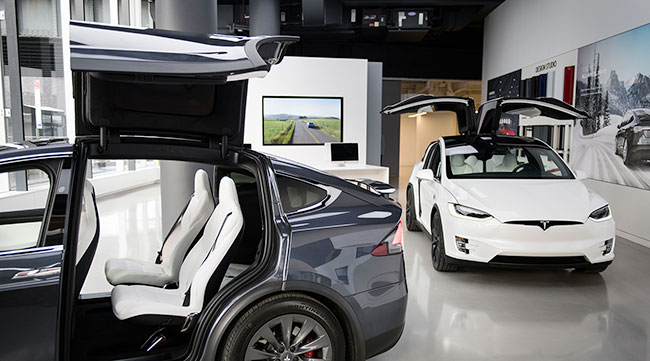
Tesla Inc. Model X P100D sports utility vehicles sit on display at the company's new showroom in New York. (Mark Kauzlarich/Bloomberg News)
That gives Fiat Chrysler a second-hand relationship to leadership. FCA’s own development program, which it shares with BMW and Intel, is in the middle of the pack, according to Navigant. It trails other second-tier players such as VW, Mercedes, Toyota, Renault-Nissan and China’s Baidu.
Navigant rates the BMW-FCA-Intel program ahead of May Mobility, which operates driverless shuttles in downtown Detroit; Volvo; France’s Navya; Hyundai, Uber and others.
A couple of high-profile names rank at the bottom of Navigant’s standings: Tesla and Apple.
High-profile crashes involving Tesla’s misleadingly named Autopilot system and anecdotal customer reports of other problems won Tesla the second-lowest ranking, leading only Apple. Tesla CEO Elon Musk’s repeated promises that true self-driving capability is around the corner do not convince Navigant.
Navigant also is skeptical of suggestions that Apple might build a vehicle, but it said the company’s energy-efficient processors could be well-suited for vehicles. Apple placed last on Navigant’s leaderboard, but the company’s resources and skill still make it a player to watch.
Partnerships among automakers, suppliers and tech firms are common because AV development is expensive, particularly at a time when automakers also are spending heavily on electric powertrains and to keep improving current technologies until the revolutionary new vehicles arrive.
Distributed by Tribune Content Agency, LLC


